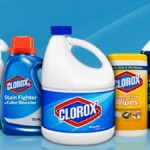 New York City – A study by The Regeneration Roadmap – a joint project by GlobeScan, SustainAbility, and BBMG – finds that nearly 9 in 10 consumers globally (86%) say “ingredient transparency is extremely important or very important” for companies to address as part of their products, services, or operations, including 88% of consumers in emerging markets and 84% of consumers in developed markets. However, only 57% regularly “check the list of ingredients before purchasing” products, highlighting the gap between interest and action in sustainable consumption.
New York City – A study by The Regeneration Roadmap – a joint project by GlobeScan, SustainAbility, and BBMG – finds that nearly 9 in 10 consumers globally (86%) say “ingredient transparency is extremely important or very important” for companies to address as part of their products, services, or operations, including 88% of consumers in emerging markets and 84% of consumers in developed markets. However, only 57% regularly “check the list of ingredients before purchasing” products, highlighting the gap between interest and action in sustainable consumption.
According to the report – “Re:Thinking Consumption: Consumers and the Future of Sustainability” – ingredient transparency is also a “very important” or “important” factor in purchase decisions across key categories, such as food and beverage (82%), beauty and personal care (82%), and household products (82%). The study draws from an online survey of 6,224 consumers across Brazil, China, India, Germany, the United Kingdom and the United States.
“Many consumers globally believe they have the right to know what products are made of and they want companies to ensure their products are safe and effective,” said Eric Whan, Sustainability Director at GlobeScan. “However, there’s a gap between interest and action when it comes to actually reading the list of ingredients on product packaging.”
“The overwhelming majority of consumers identifies ingredient transparency as an important consideration in making purchase decisions for food, beauty and household products,” said Raphael Bemporad, Co-founder of Brand Innovation Consultancy BBMG. “Across multiple markets and product categories, consumers are expressing interest in what goes in, on and around their bodies.”
Re:Thinking Consumption Report – Key Findings
Food and Beverage:
- Ingredient Transparency: More than 8 in 10 consumers globally say that “ingredient transparency is a very important or important factor” (82%) when shopping for food and beverage products, including 86% of consumers in emerging markets and 78% in developed markets.
- Non-GMOs: Additionally, nearly two-thirds of consumers seek food and beverage products “made with no genetically modified organisms” (64%) while making purchase decisions, including 78% in emerging markets and 52% in developed markets.
- Natural Ingredients: Eighty percent of consumers polled from six different countries consider it “very important or important” that their food and beverage purchases are “made with natural ingredients,” including 88% of consumers in emerging markets and 72% in developed markets.
Beauty and Personal Care:
- Ingredient Transparency: More than 8 in 10 consumers globally (82%) say that ingredient transparency is a “very important or important” factor when shopping for beauty and personal care products, including 88% in emerging markets and 76% in developed markets.
- No Harsh Chemicals or Toxins: Additionally, 87% of consumers say “uses no harsh chemicals or toxins” drives their product purchases in the beauty and personal care category, including 91% in emerging markets and 82% in developed markets.
- Ingredient Transparency: A total of 82% of consumers seek “ingredient transparency” when purchasing household goods, including 87% in emerging markets and 77% in developed markets.
- No Harsh Chemicals or Toxins: The majority (85%) of consumers globally consider “made with no harsh chemicals or toxins” to be a very important or important qualification when purchasing household care products, including 89% in emerging markets and 81% in developed markets.
Box Turners:
- Checking the List of Ingredients: Nearly 6 in 10 consumers (57%) say they “checked the list of ingredients before purchasing” products either all of the time or most of the time during the last year, including 65% in emerging markets and 49% in developed markets.
Background and Methodology
Developed by BBMG, GlobeScan and SustainAbility, The Regeneration Consumer Study is an in-depth online survey of consumer attitudes, motivations and behaviours relating to sustainable consumption among 6,224 respondents across six major international markets (Brazil, China, Germany, India, the United Kingdom and the United States) conducted in September and October 2012. Drawn from consumer research panels, global data are comparable to having a margin of error of +/- 1.3 percent. Analysis of country-level data reflects a margin of error of +/- 3.1 percent.
The study is part of the The Regeneration Roadmap, a collaborative and multi-faceted thought leadership initiative designed to engage the private sector in advancing sustainable development by improving sustainability strategy, increasing credibility and delivering results at greater speed and scale.
Presenting Sponsors of The Regeneration Roadmap are BMW Group and SC Johnson. Sponsors include Cisco, DuPont, Interface and Pfizer. The Regeneration Consumer Study is sponsored by Campbell Soup Company, Itau, L’Oréal, Shell and Starbucks.
Source: GlobeScan.
















